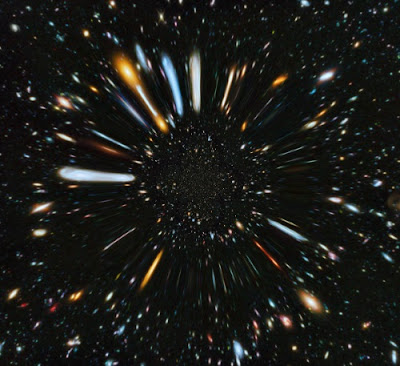Excessively Presumptive Cosmologists
In any field of science, there has to be some degree of presumption. Scientists have to presume the uniformity of nature and its laws (although secularists refuse to admit that God, who created everything, upholds the universe by his power). When getting further into evolution-related fields, more presumptions are made based on naturalistic presuppositions. This is clearly seen in cosmology — which is not even science, but a philosophy.
Cosmic owlhoots Krauss and Scherrer wrote a paper that may not have been entirely serious, saying that cosmologists in the future may not have the necessary information to make the correct conclusions about the universe that today's scientists have made. What, nobody keeps or refers to records? The authors got the bit in their teeth and galloped off with the presumption that they are correct in the first place in the here and now. (Reminds me of the tinhorns who sequenced the human genome years ago, did it sloppily, then asserted that the DNA they didn't find a use for in their current, limited knowledge was "junk". Then they were proved way, way wrong.) Further pursuits and assertions reveal that the Big Bang assumptions of the authors have a seriously flawed epistemology (study of knowledge). Scientists today need a passel of humility, as their arrogance is getting in the way of doing useful science.
 |
| Credit: NASA / ESA (modified) Usage does not imply endorsement of site contents |
Lawrence Krauss and Robert J. Scherrer surprised the cosmology world in 2007 when they published an essay titled “The Return of a Static Universe and the End of Cosmology.” The paper showed that, assuming the truth of the current big bang model, in the far future (hundreds of billions of years from now) many evidences for the big bang itself will be gone, preventing future cosmologists from even being able to detect evidence for it.To read the rest, click on "What Krauss and Scherrer’s 'End of Cosmology' Scenario Means for the Epistemology of Modern-Day Cosmology".
In these papers, it is noted that, assuming the big bang model is true, at some point in the future, galaxies will be far enough away from each other as to not be seen. Within a galaxy, the operation of physics is relatively static. Therefore, at some point in the future, we will not be able to witness some of the more dynamic effects of expansion, which were critical in the development of big bang cosmology.